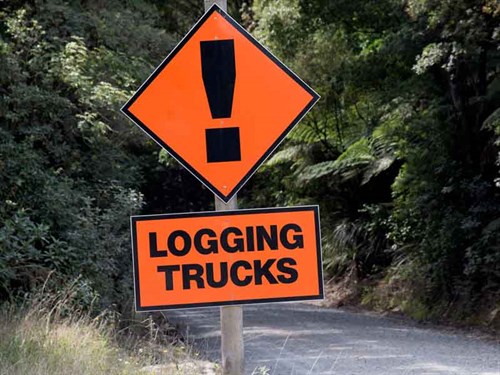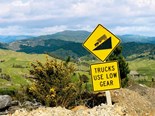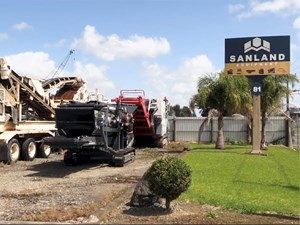Comment: Road safety must be a priority for the new Government
With last year’s heavy vehicle driver death toll being the highest recorded since 2006, the new Government will face a pressing issue when it comes to road safety
Is it just me or did others out there quite enjoy the three weeks we waited for Winston Peters to make his decision over who he would anoint as Government? Perhaps it just shows my libertarian tendencies but it was quite refreshing to have a period free from being ‘governed’.

By being governed, I mean the points scoring and pontification of politicians, the faux sensationalism of the media, and the disproportionate overreaction from every conceivable ginger group to ever crawl out of the woodwork.
For most New Zealanders who don’t live in the Wellington bubble, life carried on as normal through this period. The paper turned up on the doorstep in the morning, the kids still went to school, and the trains continued to run on time. What it actually proved was the strength of our state’s core institutions and that government with a small ‘g’ is not entirely dependent on Government with a big ‘G’.
Despite this rather enjoyable hiatus, the fact is that the new Government actually has a lot on its plate. Pressure is on to make big gains on a number of social fronts as well as in environmental areas such as water quality and climate change. Infrastructure will obviously be a focus on Auckland’s booming population growth and the expanding economy throwing up some extremely challenging circumstances, especially for a country already in infrastructure deficit.
Road safety
The direction of transport policy will also be under an incredible amount of scrutiny. Some big decisions are just over the horizon—light rail for Auckland and Wellington, the future of the East-West Link and what will become of the Ports of Auckland in its current form.
However, the new Government also faces a very pressing issue when it comes to road safety. The overall trend over the last 20 to 30 years has been a steady reduction in the road toll and a general improvement in the accident rate. The problem is that trend has begun to reverse over the last four years, and the road toll has started to trend back upwards.
There were 282 road deaths up until October—15% more than at the same time last year, making 2017 on track to become the deadliest year on the roads since 2010. There’s a general feeling among the electorate that perhaps the drive towards making our transport corridors more efficient and our roads more productive has come at a cost to people’s safety.
Unfortunately, one of the easiest targets for those looking to point the finger of blame is the growth in the number of heavy vehicles on the road. Last year’s heavy vehicle driver toll of 84 deaths was the highest recorded since 2006, and this year could produce an even higher number.
When judged upon per kilometre travelled, the statistics tell a different story, and the fact remains that less than one-third of fatal accidents involving a truck are the fault of the truck driver.
It’s also not possible, as some commentators have surmised, to just remove freight from trucks and stick it on rail or coastal shipping. The vast majority of freight is a just-in-time undertaking based on customer requirements, which cannot be satisfied by slower and fewer flexible transport modes.
However, on emotive issues such as this, those arguments tend to sound a little stale. The fact is that every accident involving a truck helps to cement the perception that trucks are a dangerous menace on roads.
Reports of increased driver distraction, too much speed for the conditions, alcohol use, and the lack of median barriers all probably have a part to play, but Government policy cannot be made on a hunch.
The new Government and its officials must, therefore, bore down through the data and crash reports to establish what the underlying causes are to the increasing road toll. The electorate, including the trucking industry, which at the end of the day spends more time on the road than anyone else, expects results.
Read more industry news on Deals on Wheels.
Keep up to date in the industry by signing up to Deals on Wheels' free newsletter or liking us on Facebook.







.jpg)








